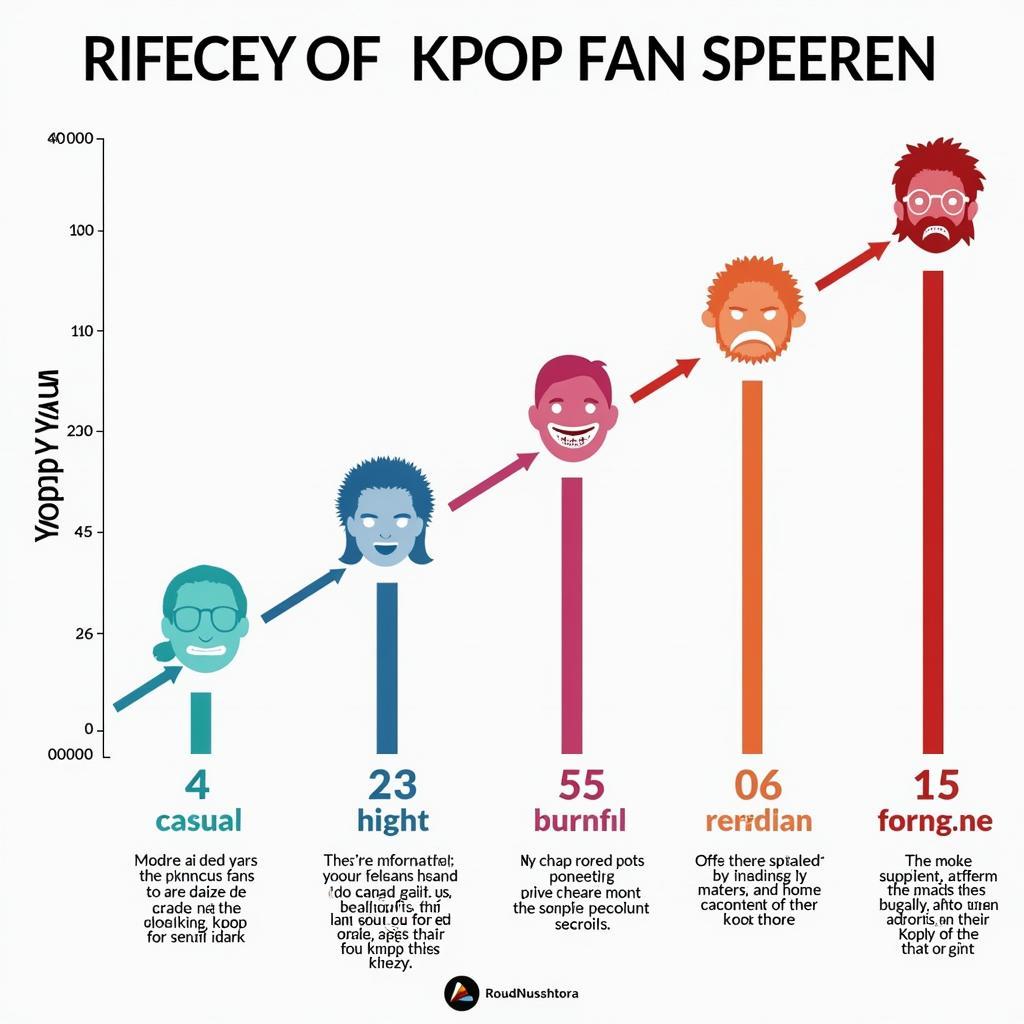The internet, and particularly Reddit, can be a breeding ground for strong opinions and generalizations. One such generalization often tossed around is the idea that “kpop fan girls are crazy.” This statement, often delivered with a smirk and an eye roll, paints a picture of obsessive fans engaging in extreme behavior. But is there any truth to this stereotype, or is it simply a lazy caricature fueled by misunderstanding and prejudice?
Dissecting the Stereotype: What Makes a Fan “Crazy?”
Before delving into the validity of this claim, it’s essential to define what constitutes “crazy” behavior in the context of fandom. While passion is a hallmark of any fandom, the line between dedicated fan and “crazy” often blurs.
- Obsessive Tendencies: Spending an exorbitant amount of time on idol-related activities, neglecting personal responsibilities, or exhibiting possessiveness over idols are often cited as “crazy” behaviors.
- Extreme Reactions: Over-the-top emotional responses to news, rumors, or perceived slights against their idols can fuel the perception of irrationality.
- Toxic Behavior: Engaging in online harassment, bullying, or spreading negativity within the fandom are undoubtedly harmful actions that contribute to the negative image.
 Kpop fan behavior spectrum
Kpop fan behavior spectrum
Understanding the Kpop Fandom Culture
To understand why the “crazy” label sticks, it’s crucial to consider the unique aspects of Kpop fandom culture:
- Intense Emotional Connection: Kpop idols are marketed not just as musicians, but as role models, crafting relatable narratives and fostering close connections with fans. This curated intimacy can lead to strong emotional attachments that may seem excessive to outsiders.
- Highly Organized Fandoms: Kpop fandoms are known for their organization and dedication. From trending hashtags to mass voting campaigns, fans operate with a coordinated intensity that can appear overwhelming.
- Cultural Differences: The passionate expression of fandom, common in Korean culture, may not translate smoothly to other cultural contexts, leading to misunderstandings about appropriate behavior.
 Kpop idols interacting with fans
Kpop idols interacting with fans
Challenging the Narrative: It’s Not Just Kpop
While the “crazy kpop fan girl” stereotype might be a popular internet trope, it’s crucial to recognize that such generalizations are unfair and inaccurate:
- Every Fandom Has Its Extremes: Attributing extreme behavior to an entire group based on the actions of a few is a logical fallacy. Every fandom, from sports to movies to music, has its share of overly enthusiastic individuals.
- Misogyny Plays a Role: The stereotype often specifically targets young women, dismissing their interests as frivolous or hysterical. This gendered bias minimizes the genuine passion and engagement of female fans.
A More Nuanced Perspective: Appreciating the Positive
Instead of perpetuating harmful stereotypes, it’s important to acknowledge the positive aspects of Kpop fandom:
- Creative Expression: From fan art to fan fiction to dance covers, Kpop fans are incredibly creative, channeling their passion into diverse forms of self-expression.
- Global Community: Kpop transcends geographical boundaries, connecting fans worldwide through shared love for music, language, and culture.
- Social Activism: Kpop fandoms have demonstrated their power by mobilizing for social causes, raising awareness and funds for important issues.
 Kpop fan community engaging in creative activities
Kpop fan community engaging in creative activities
Conclusion: Looking Beyond the Label
While the “kpop fan girls are crazy” narrative might offer an easy punchline, it’s a reductive and ultimately harmful generalization. By understanding the cultural context, appreciating the positive contributions of fans, and challenging the gendered bias inherent in the stereotype, we can move towards a more nuanced and respectful perspective on Kpop fandom.


